How High Blood Pressure Affects Your Body
High blood pressure, also known as the "silent killer," often goes unnoticed as many patients mistakenly believe that a lack of symptoms means they’re in the clear. This dangerous misconception can result in severe health consequences if left unmanaged.
Dr. Hafeza Shaikh, Cardiologist, Virtua Cardiology
High blood pressure, known as the "silent killer," often goes unnoticed as many patients mistakenly believe that a lack of symptoms means they’re in the clear. In reality, high blood pressure quietly damages the body over time. Often there are no warning signs until a serious event occurs. That’s why understanding how it affects your body and what you can do to lower your blood pressure is so important.
Why is High Blood Pressure So Dangerous?
High blood pressure exerts excess strain on the arteries, causing them to weaken and narrow over time. Left untreated, it can lead to serious and even life-threatening complications. Here’s how high blood pressure can affect different areas of the body:
- Heart: Your heart works harder to pump blood, leading to the thickening of the heart muscle and potentially resulting in heart failure. It also increases the risk of heart attack, chest pain (angina), and arrhythmias.
- Arteries: Damage to artery walls can lead to aneurysms and reduced elasticity, increasing the risk of rupture or cardiovascular events.
- Brain: Reduced or blocked blood flow to the brain increases your risk of stroke. Studies also suggest that hypertension may lead to mild cognitive impairment.
- Kidneys: The kidneys depend on healthy blood vessels for proper function. High blood pressure can weaken these vessels, impairing kidney function and potentially leading to kidney failure.
- Eyes: It may lead to blurred vision or even permanent vision loss due to damage to the blood vessels in the eyes.
- Sexual health: High blood pressure can contribute to sexual dysfunction in both men and women.
Simple Steps to Lower Your Blood Pressure
Managing high blood pressure does not require drastic changes. Small, consistent habits can lead to lasting improvements. Here are additional tips to improve your heart health:
- Monitor blood pressure: Keeping track of blood pressure at home can help you stay aware of changes and take early action if necessary.
- Maintain a healthy diet: Focus on fruits, vegetables, whole grains, and lean proteins. Limit salt, processed foods, trans fats, cholesterol, and added sugars. The Mediterranean-style diet is a helpful guideline.
- Maintain a healthy weight
- Get some physical activity daily. A daily 30-minute walk is a great place to start.
- Limit alcohol intake and quit smoking or vaping: These habits contribute to elevated blood pressure and increase the risk of heart disease.
- Manage stress: Chronic stress can elevate blood pressure. Techniques such as meditation, deep breathing exercises, or yoga can help reduce stress levels.
Take Control of Your Heart Health
If you're concerned about your blood pressure or heart health, make an appointment with a Virtua cardiologist today. Our team is ready to help you take control of your health by creating a personalized plan that works for you. Don’t wait—your heart deserves the best care!There's So Much More to Explore
Discover expert insights, inspiring stories, health tips, and more by exploring the content below!

Can Your Gut Health Affect Your Heart?

How the Unique Stages of a Woman's Heart Affect Her Health

Complex Aortic Surgery Provides Lu’Shell Hope for the Future

HeartTalk Magazine

How to Spot the Early Signs and Symptoms of a Stroke

Are You Eating Too Much Salt? High-Sodium Foods to Watch For

Don't Drink Alcohol? You Could Still Get Fatty Liver Disease

4 Exercise Tips to Help You Reverse High Blood Pressure

Timely Heart Care During a Heart Attack Helps Joe Feed the Community

3 Reasons Why Now's the Time to Find Relief From Varicose Veins

The Brain Health Checklist: 11 Questions Everyone Should Ask

Lifesaving Heart Care Creates a 'Bond That's Never Left Us'

How High Blood Pressure Affects Your Body

5 Interesting Facts About Your Heart

Get to the Bottom of Blood Pressure Numbers

CABG Surgery: What Women Should Know About Heart Health and Healing

When to Take Action for a Stronger Heart

Groundbreaking Renal Denervation Procedure Controls a Lifetime of High Blood Pressure
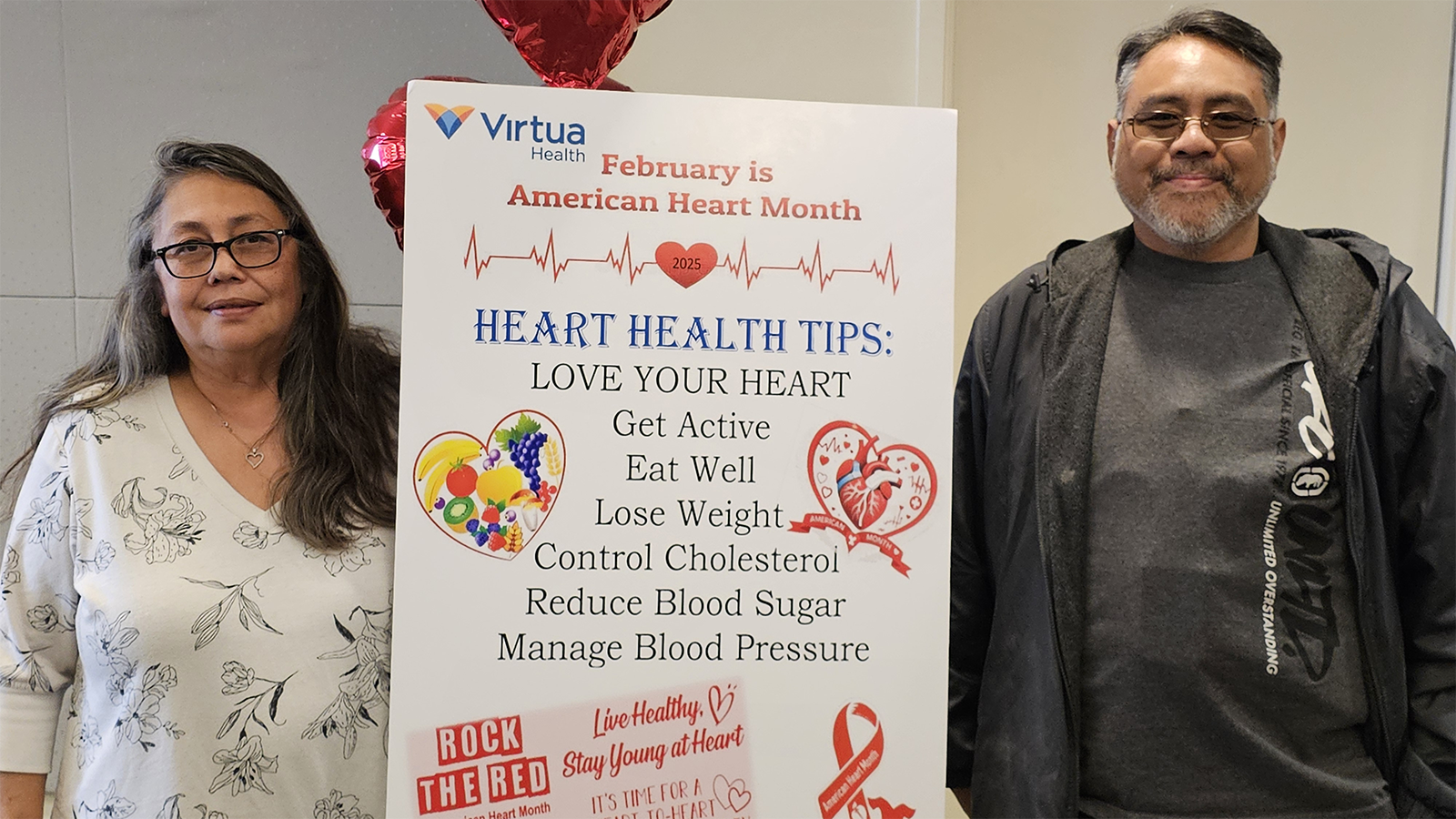
Patient Story: LVAD Mechanical Pump Strengthens Michael's Heart Function

Mitral Valve Surgery Keeps Yaneth Living the American Dream

5 Stages of Chronic Kidney Disease
Inside Look at Blood Vessels Aids PAD Treatment
Denise Davis: Pay Attention to Your Heart Health

What You Need To Know About Stroke Treatment

Best Foods for Kidney Health
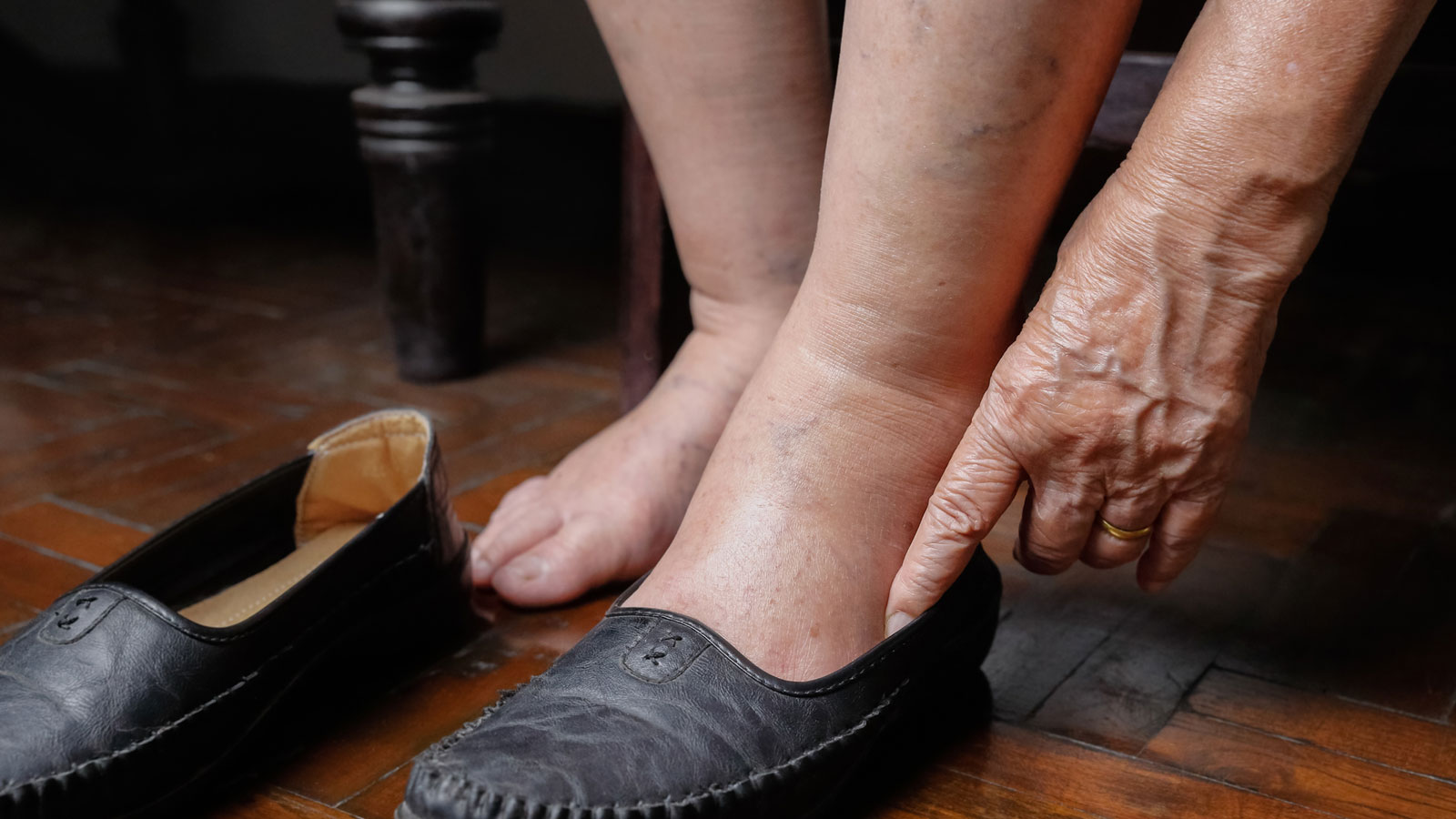
High Blood Pressure and Chronic Kidney Disease

9 Tips for Maintaining Healthy Kidneys

Prayers Answered: Pastor Gatling on New Mission After Kidney Transplant

Signs You May Have Chronic Kidney Disease

Rare Kidney Autotransplant Gives Patricia More Time With Family

Sweet Music: Trust, Teamwork Save Justin from Heart Attack

Complex Heart Surgery Nets James a Lifelong Friend
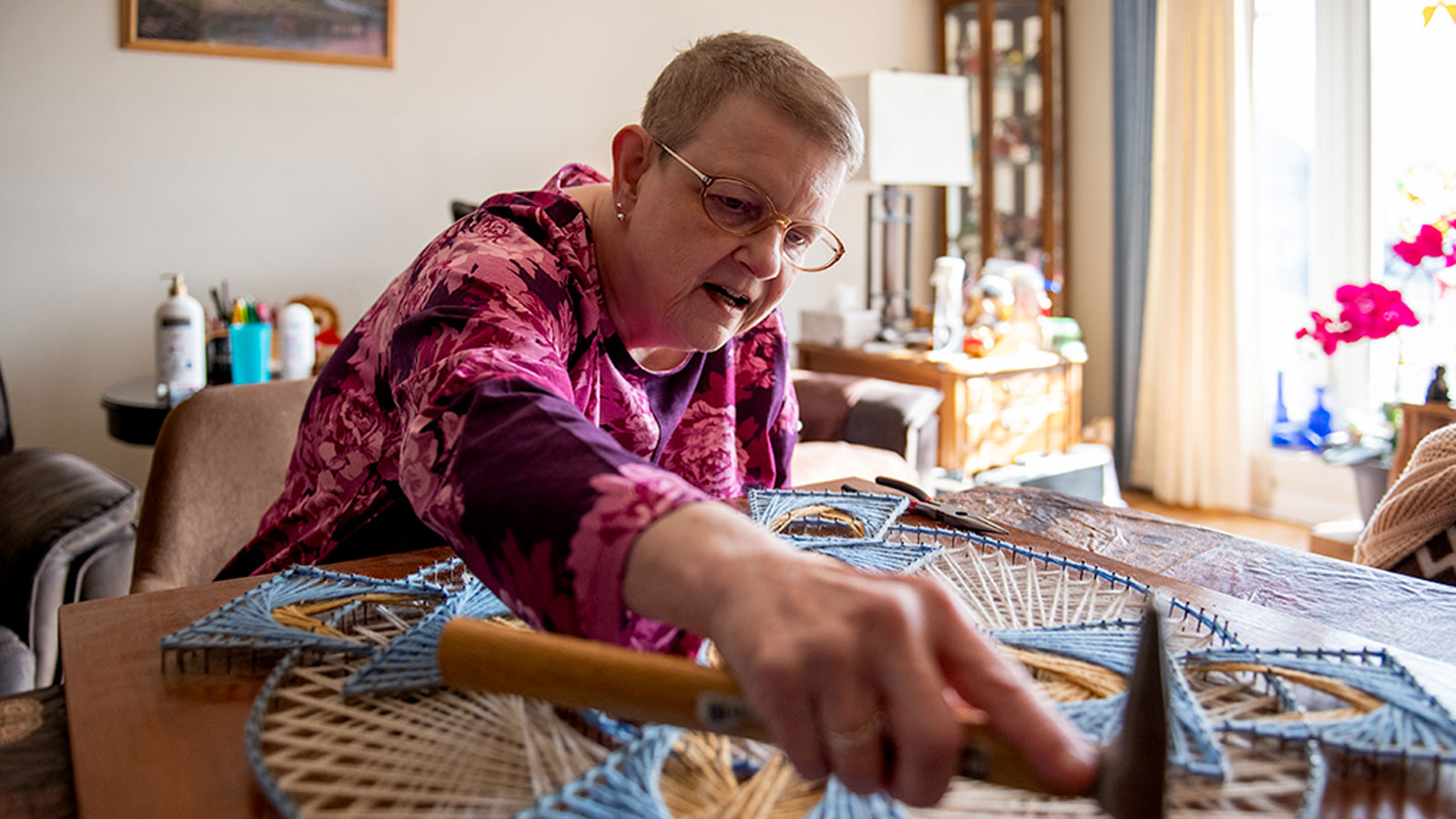
Hepatitis C Kidney Transplant a Blessing For Lee Manns
Special Delivery Organ Transplant Gives Amazon Employee Second Chance

Surprising Symptoms May Signal Stroke In Women

8 Key Steps to Better Blood Pressure Control

Signs You Should Get Treated For Vein Problems

One New Heart Valve Saves Two Lives in the Tritten Family

What You Need to Know About Heart Failure

6 Numbers Key to Keeping Your Heart Healthy

Quick Action Leads to Jesse's Recovery From Stroke

South Jersey Veteran Thrives After Cross-Country Kidney Donation

Five Mindfulness Tips That Can Help Heal Your Heart

Watchman Heart Device: a Technological Breakthrough for Blood Clot Prevention

Albert's Emergency Cardiac Surgery Is a 'Story of a Lifetime'

Love Your Heart: Essential Care Tips for Every Stage of Life

How Do I Measure My Blood Pressure at Home?

How Do I Improve My Cholesterol Levels?

3 Ways to Reduce Your Stroke Risk
Advanced Heart Failure Therapies Get Bernadine Back to Full Speed

Keeping the Beat: Advanced Heart Surgery for Aortic Aneurysm

Heart-Healthy Summer Recipe: Hummus and Veggies

4 Delicious Heart-Healthy Recipes Perfect for Summer

Heart Healthy Summer Recipe: Dessert Parfait

Heart-Healthy Summer Recipe: Pear and Walnut Salad

Heart-Healthy Summer Recipe: Terrific Turkey Burgers
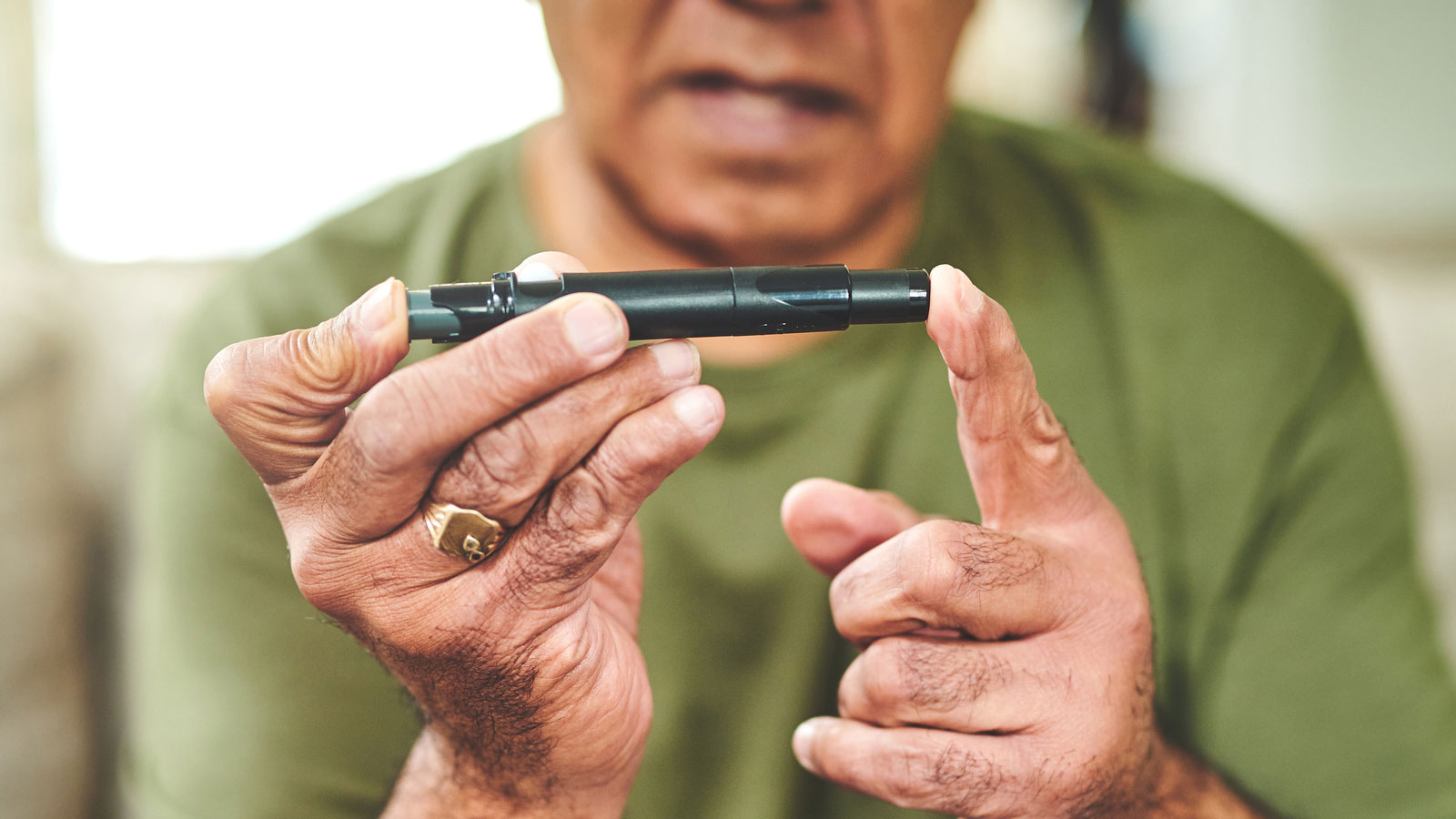
Are You At Risk For Chronic Kidney Disease
Atrial Fibrillation and Stroke: What's the Connection?
Heart Tests Your Doctor May Order

Local Pastor Makes Kidney Health Mission of Ministry
Managing Pregnancy for Mothers With Heart Conditions

Heart Healthy Recipe: Basil Pesto Pasta With Seared Vegetables
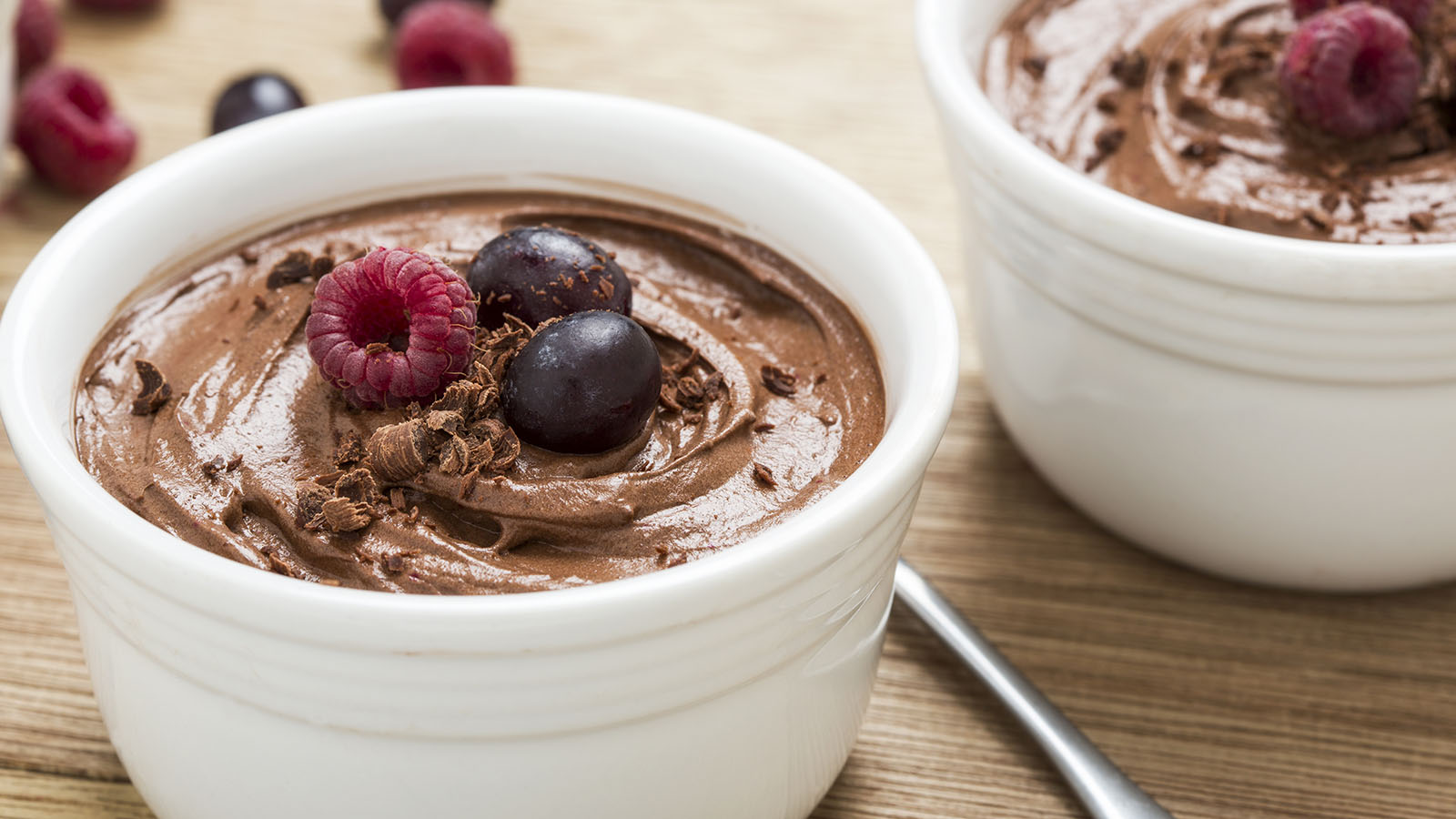
Heart Healthy Recipe Chocolate Avocado Chia Pudding
Keep Your Heart Rhythm in Check With Your Smartwatch
Mind Your Meds for Blood Pressure Risks
Magic Pill for Heart Health? Cut 300 Calories a Day
3 Smart Ways to Boost Your Heart Health
3 Best Exercises For Heart Health

Get Your Heart Pumping With These 25 Workout Songs
Your Chest Pain: Heartburn, Heart Attack, or Something Else?
3 Heart Healthy Recipes to Win Valentines Day
How Work and Home Stress Can Affect You
Why Improving Your Health Is Going To The Dogs And Cats
Why Younger Women Need Start NOW To Safeguard Their Hearts From Heart Attacks
Can You Die of a Broken Heart?
Mitral Valve Surgery Opens Doors for Improved Quality of Life
6 Healthy Habits to Start in Your 20s for Better Lifelong Health
Do You Have a Fatty Heart?
Get Pumped! Assist Devices Can Improve Heart Failure Symptoms
A Cardiologists Advice on Heart-saving Emergency Cardiac Care
Virtua Doctor’s Experience Is a Warning for All About COVID-19 and Strokes
You May Feel Fine, but Gregory Says "Don't Skip Your Medical Care"
In Sickness and in Health: Couples Often Share Heart Disease Risk
"Reduce Your Heart Disease Risk With a Plant-based Diet"
Hybrid Robotic Heart Surgery and Valve Replacement Restores Quality of Life
Can Marijuana Hurt Your Heart Health?
6 Tips for Restoring Your Heart Rhythm
Eat Smart for Your Heart
Cardiac Rehab: Strengthening Your Heart After Leaving the Hospital
Your Heart Needs A Good Nights Sleep
Are You at Risk for AAA—the Silent Killer?
The Cardio Oncology Team Protects Your Heart During Cancer Treatment
Get Relief From Painful Varicose Veins This Summer
Exercise Your Way to a Stronger Heart
Fish Oil: A Good Catch or a Scam?
My Heart Seems to Skip a Beat - Should I Be Worried?
Menu Planning? Try These 5 Heart-smart Substitutions

5 Health Risks Tied to Weight

